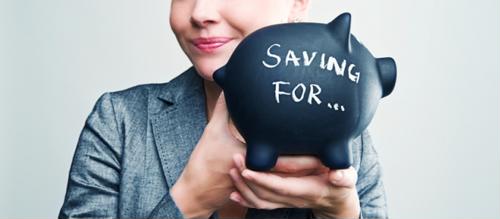
Like life insurance, fire extinguishers and toilet plungers, an emergency fund is the kind of thing you never want to have to use, but also never want to be without.
Yet with 40 percent of Americans saying they would need to borrow money to cover an unexpected $400 expense, according to CNN, it’s clear that many in the U.S. are indeed going without. Although it’s likely not a conscious decision to spend rather than save, and there are a whole host of legitimate reasons why it can sometimes feel nearly impossible just to make ends meet, the truth is that those who are in debt or living paycheck to paycheck are usually the most vulnerable and the hardest hit whenever a genuine financial emergency does strike.
Why you need an emergency fund
While almost everyone could benefit from a rainy day fund, there are some people for whom saving is an especially urgent goal.
For example, if you have only one source of income, creating an emergency fund is an essential step towards financial security. One of the main reasons for such a fund is to have something to live off of in the event that you suddenly lose your job. The Balance recommends that individuals who are single or the sole provider for their family should have a full year’s worth of expenses saved up, though even having just three to six months is a good start. This holds especially true for independent contractors, freelancers, the self-employed and those who work a job that does not allow them to claim unemployment benefits.
Additionally, there are types of emergencies completely unrelated to your income. If you have a history of medical issues, or less than stellar health insurance, you should recognize the necessity of an emergency fund. Alternately, if you live far from family, you may need to cover a lot of unexpected travel expenses if you need to rush home when a loved one experiences a health scare or sudden death, or even a more positive development, like a wedding or baby.
Less serious but no less costly concerns include unanticipated car trouble, home repairs and rent increases.
Ways to start saving
By definition, you need to be able to access this money in the event of a sudden emergency, so your emergency fund should be placed into an accessible savings account, rather than any sort of retirement or investment fund.
Creating an emergency fund could be as simple as having a portion of your direct deposit go into a designated savings account, or setting up a recurring monthly transfer from checking to savings.
If you want another way to build up your rainy day fund, Bankrate recommends you take a more active approach and add up your expenses at the end of the month, compare them to your net income and put the surplus into your savings account. By doing both, you’ll be amazed at how quickly you are able to achieve your savings goals.
To open and build a savings account solely dedicated to covering any and all emergency expenses, reach out to The Federal Savings Bank.
This information is intended for educational purposes only. Products and interest rates subject to change without notice. Loan products are subject to credit approval and include terms and conditions, fees and other costs. Terms and conditions may apply. Property insurance is required on all loans secured by property. VA loan products are subject to VA eligibility requirements. Adjustable Rate Mortgage (ARM) interest rates and monthly payment are subject to adjustment. Upon submission of a full application, a mortgage banker will review and provide you with the terms, conditions, disclosures, and additional details on the interest rates that apply to your individual situation.


